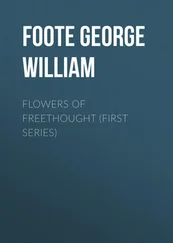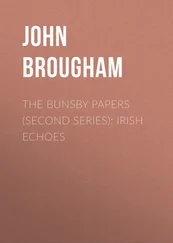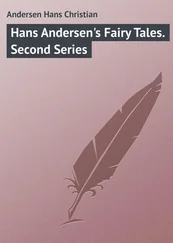Now, in reply to this paragraph, we have first to observe that our contemporary takes Lord Tennyson's name in vain. The villain of the "Promise of May" is certainly an Agnostic, but are not the villains of many other plays Christians? Lord Tennyson does not make the rascal's wickedness the logical result of his principles; indeed, although our contemporary seems ignorant of the fact, he disclaimed any such intention, A press announcement was circulated by his eldest son, on his behalf, that the rascal was meant to be a sentimentalist and ne'er-do-well, who, whatever his opinions, would have come to a bad end. When the Commonwealth , therefore, talks of Lord Tennyson as "about right," it shows, in a rather vulgar way, the danger of incomplete information. Were we to copy its manners we might use a swifter phrase.
That Atheists, in the name of freedom, throw off the restraints of moral law, is a statement which we defy the Commonwealth to prove, or in the slightest degree to support, and we will even go to the length of suggesting how it might undertake the task.
Turpitude of character must betray itself. Moral corruption can no more be hidden than physical corruption. Wickedness "will out," like murder or smallpox. A man's wife discovers it; his children shun him instead of clinging about his knees; his neighbors and acquaintances eye him with suspicion or dislike; his evil nature pulsates through an ever-widening circle of detection, and in time nis bad passions are written upon his features in the infallible lines of mouth and eyes and face. How easy, then, it should be to pick out these Atheists. The most evil-looking men should belong to that persuasion. But do they? We invite our contemporary to a trial. Let it inquire the religious opinions of a dozen or two, and see if there is an Atheist among them.
Again, a certain amount of evil disposition must produce a certain percentage of criminal conduct. Accordingly the gaols should contain a large proportion of Atheists. But do they? Statistics prove they do not . When the present writer was imprisoned for "blasphemy," and was asked his religion, he answered "None," to the wide-eyed astonishment of the official who put the question. Atheists were scarce in the establishment. Catholics were there, and red tickets were on their cell-doors; Protestants were there, and white tickets marked their apartments; Jews were there, and provision was made for their special observances; but the Atheist was the rara avis , the very phoenix of Holloway Gaol.
Let us turn to another method of investigation. During the last ten years four members have been expelled from the House of Commons. One of them was not expelled in the full sense of the word; he was, however, thrust by brute force from the precincts of the House. His name was Charles Bradlaugh, and he was an Atheist. But what was his crime? Simply this: he differed from his fellow members as to his competence to take the parliamentary oath, and the ultimate event proved that he was right and they were wrong. Now what were the crimes of the three other members, who were completely and absolutely expelled? Captain Verney was found guilty of procuration for seduction, Mr. Hastings was found guilty of embezzlement, and Mr. De Cobain was pronounced guilty of evading justice, while charged with unnatural offences. Mr. Jabez Spencer Balfour might also have been expelled, if he had not accepted the Chiltern Hundreds. Now all these real delinquents were Christians, and even ostentatious Christians. Compare them with Charles Bradlaugh, the Atheist, and say which side has the greatest cause for shame and humiliation.
Конец ознакомительного фрагмента.
Текст предоставлен ООО «ЛитРес».
Прочитайте эту книгу целиком, купив полную легальную версию на ЛитРес.
Безопасно оплатить книгу можно банковской картой Visa, MasterCard, Maestro, со счета мобильного телефона, с платежного терминала, в салоне МТС или Связной, через PayPal, WebMoney, Яндекс.Деньги, QIWI Кошелек, бонусными картами или другим удобным Вам способом.
November 21, 1886.
Mr. Hughes talks so much that he must have little time for reading. Every educated man, however, is supposed to be acquainted with Bacon's Essays , the thirteenth of which opens as follows: – "I take goodness in this sense, the affecting of the weal of men, which is that the Grecians called Philanthropia; and the word humanity (as it is used) is a little too light to express it." Bacon not only knew the antiquity of Philanthropia , but preferred it to the later and less weighty term so ignorantly celebrated by Mr. Hughes.
The Influence of Scepticism on Character . Being the sixteenth Fernley Lecture. By the Rev. William L. Watkinson. London: T. Woolmer.
April 26,1891.












